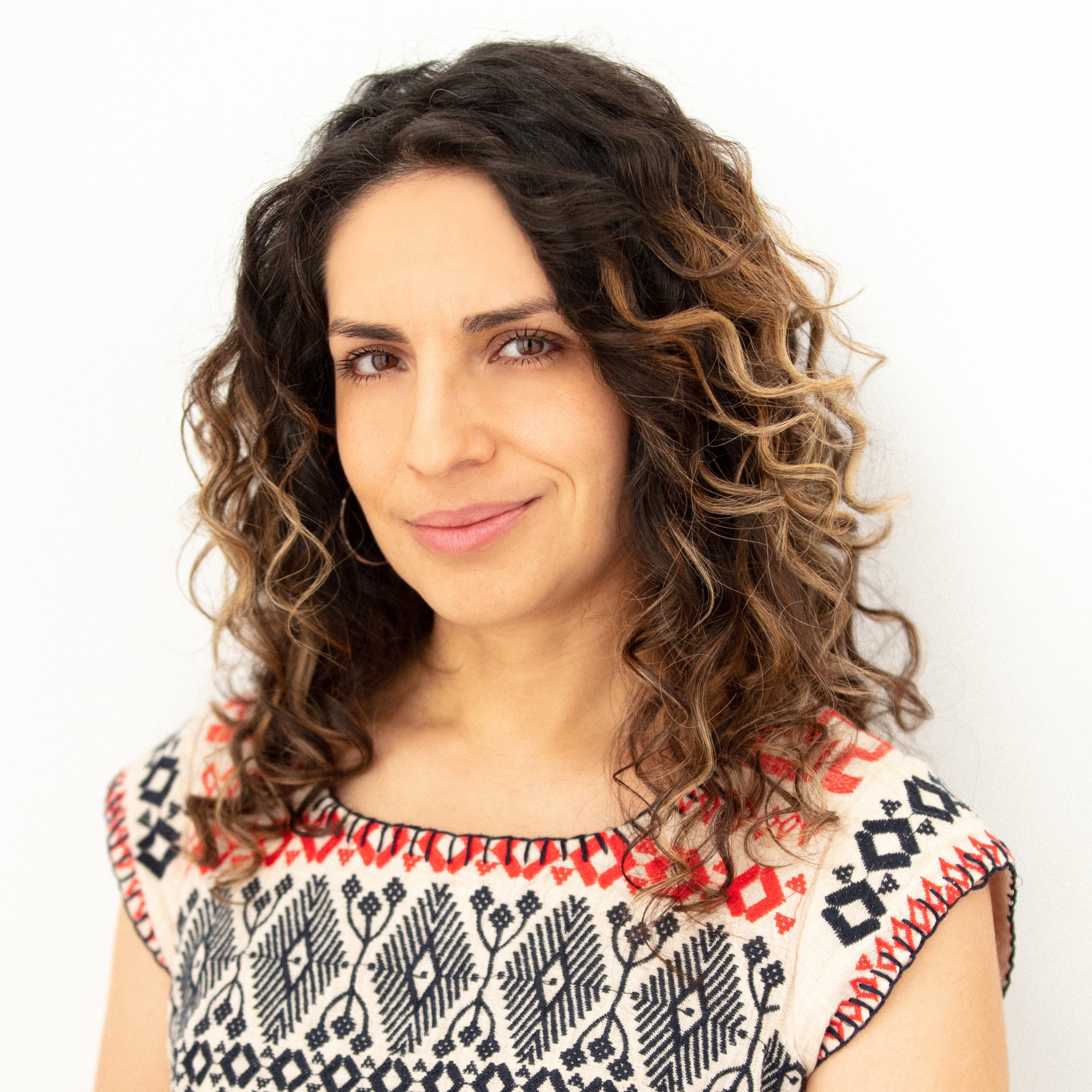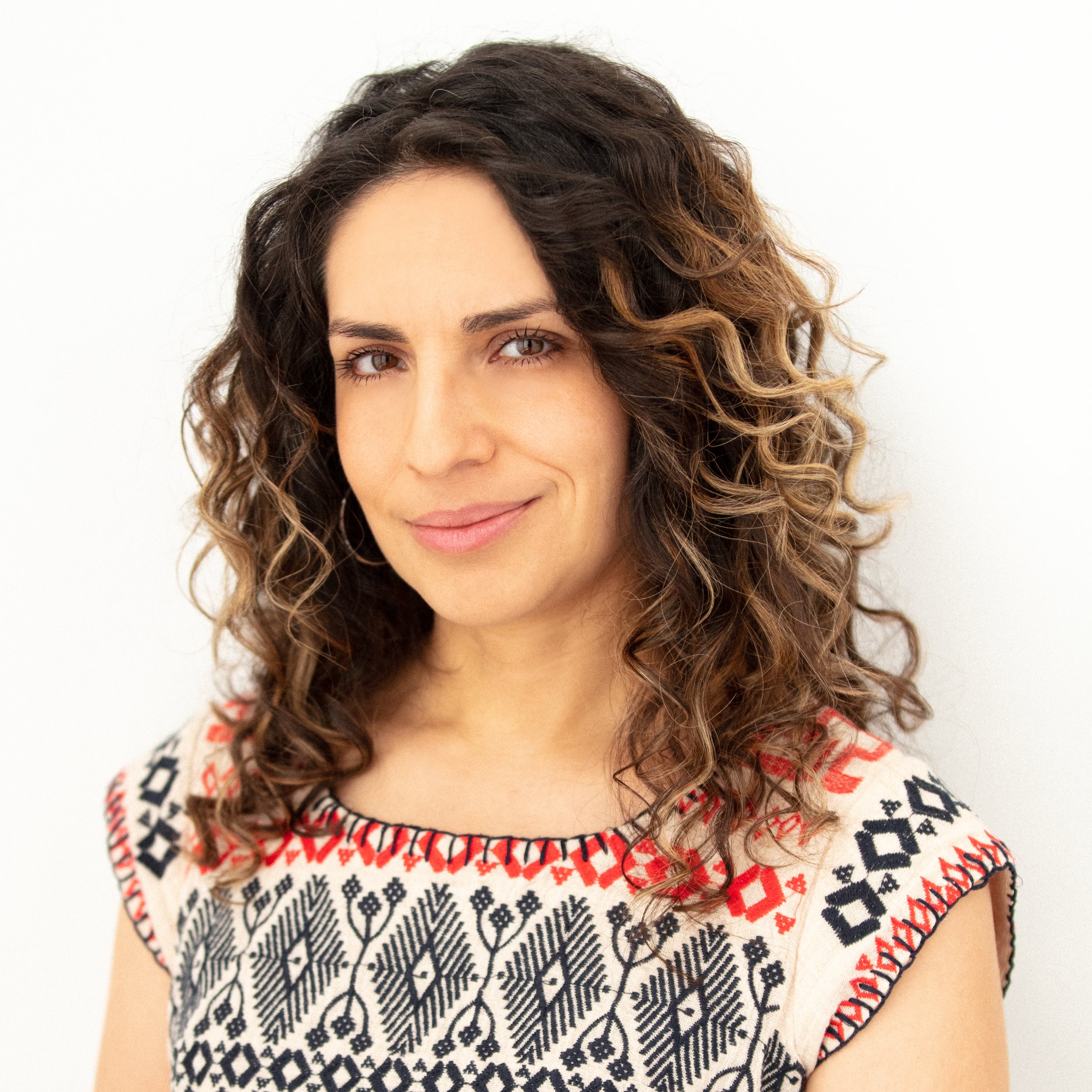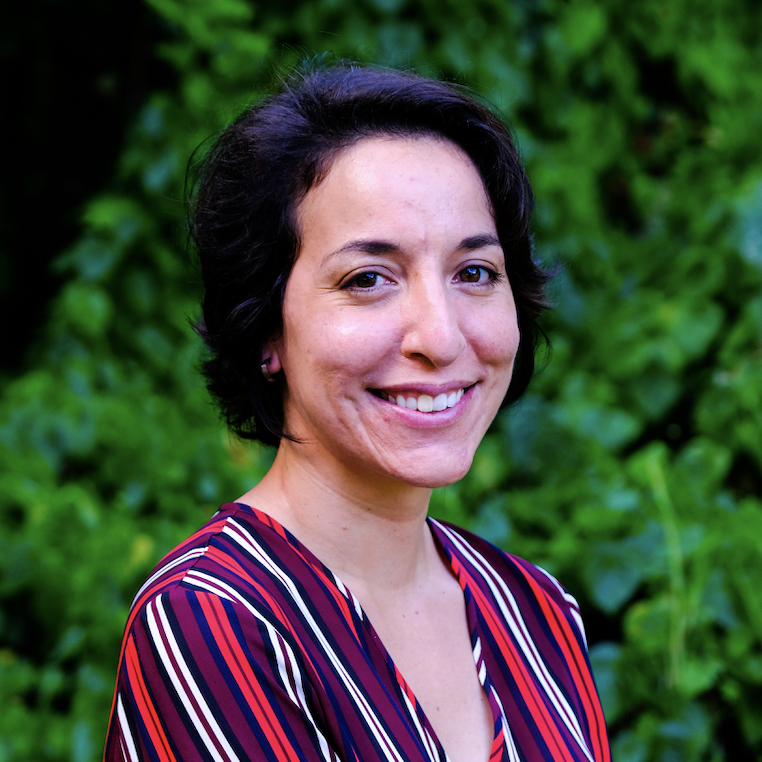How I Healed Post-Layoff
Mónica Ortiz Uribe interviews with an avocado farmer in Michoacán, México. Photo courtesy of author
Feeling relief after getting laid off, a journalist reflects on her career reporting on the U.S.-Mexico border, the cost to her mental health, and what she's learning about recovery
Editor’s Note: Mónica Ortiz Uribe is the host of palabra’s Así Fue, a podcast where journalists talk about the intersection between their personal histories and their work.
The warning bell went off in early August 2022 during the company’s second-quarter earnings call. I listened on speaker from my home office while doing my morning stretches. The news was grim. Print subscriptions continued their industry-wide dive, resulting in a net loss of $54 million. The CEO announced a “significant cost reduction program” to reassure shareholders, a plan that had the opposite effect on those of us employed by the media giant he oversaw.
My video conference invitation came a week later. I thought it was a call to discuss my investigation into why so many talented physicians were leaving our county hospital. But when I saw the Human Resources staffer pop up on the screen next to my editor, I knew. My job as my hometown newspaper’s race and diversity reporter was over just 20 months after it began. HR assured me that the decision was purely financial, not a judgment against the quality of my work.
In the year and a half since my layoff, the blows to our industry have kept on coming. No doubt journalists at the Los Angeles Times, Business Insider, TIME magazine, and other outlets are still grappling with the uncertainty of losing their jobs in the first weeks of 2024. The research firm Challenger, Gray & Christmas estimates that since 2021, more than 6,400 jobs in the broadcast, digital and print news industry have been eliminated.
When I lost my job, devastation was not what I felt. I had worked as a freelancer before and knew I could turn to that again. I was sad that I would no longer be using my 16 years worth of local and national news experience to serve my hometown. But the overarching emotion I felt was relief.
Nine months prior to my layoff, a therapist diagnosed me with post-traumatic stress disorder. Years of covering horrific violence and injustice at the U.S.-Mexico border finally caught up with me. I began my national reporting career in Ciudad Juárez where warring drug cartels hung headless corpses off bridges and tossed the tortured bodies of murdered women in the desert like trash. I witnessed immigrant families sleeping on bug-infested mattresses in a hotel basement and listened to cries of children who were taken away from their immigrant parents by federal authorities. I reported live on national radio hours after a gunman opened fire at an El Paso Walmart, a racist attack that resulted in the death of 23 people.
‘I’m writing this essay to urge fellow journalists to check-in on yourselves.’
The emotional damage manifested itself slowly at first, then came in loud bursts. I battled depression, piercing back pain, and days when I was so overcome with dread, I couldn’t pick up the phone to do an interview. Once, a bumper sticker displaying a set of semi-automatic rifles sent me spiraling into a sobbing fit. When I was still employed, I felt fortunate to have a boss who gave me days off when I struggled emotionally. At my request, he was also careful about the stories he assigned me. Even then, my gut told me I needed more time and space to heal. I kept going, however, for the sake of a steady paycheck and a sense of obligation to the readers of our newspaper.
Two weeks before I lost my job, my husband and I closed on a home in rural New Mexico. Fortunately, I had some severance pay, savings, and a few freelance gigs to help me pay my share of the mortgage. The move was part of a recovery plan that my husband and I gradually set in motion soon after I started noticing signs of my emotional turmoil. My layoff freed me to focus fully on my recovery.
Mónica’s favorite retreat is in the wild lands of southern New Mexico where she hikes and camps. Photo courtesy of author
There is no cell service, grocery store, or stoplight in the town we now call home. The daily barrage of helicopters I used to hear above the U.S.-Mexico border has been replaced with birdsong, the smog with fresh air and the asphalt with earth. In the weeks after I got laid off, I let the pace of my surroundings inspire my own movements. I said “yes” to a last minute-invitation on a river rafting trip with friends. I exercised, read for pleasure, wrote in my journal and took naps in the middle of the day. I relished not setting a morning alarm every weeknight.
Two things have been essential to recovering my well-being: finding a “daily practice” and setting aside loads of open, unscheduled time. A therapist who met with journalists shortly after the El Paso mass shooting described a “daily practice” as doing something that calms you every day. For me, it can be as simple as taking a hot shower or enjoying a device-less dinner with friends. Setting aside unscheduled time was trickier, especially in a culture that exults productivity and always being “busy.” It took me a while to quit feeling guilty when I stopped for longer than five minutes to just breathe and be silent. Long stretches of unscheduled time lowered my anxiety and eventually replaced it with the opportunity to think creative thoughts.
Today, I feel stronger than I did the summer after my layoff. Not having the pressure to perform or produce at someone else’s pace has helped me tremendously. Episodes of emotional distress are far less frequent and less intense. When they do happen, I know how to manage them better. My journal entries post-layoff are filled with happy memories of steering my own inflatable kayak between high canyon walls, watching meteors streak across a star-studded sky, and relaxing in hot springs. The trade-off, though, is apparent in my bank account: my severance is long gone, my savings depleted. Still, I’m not too worried. This year, I feel ready to take on bigger work projects, hopefully involving subjects that inspire me. The ideas for these projects were born in those moments of open, unscheduled time.
Mónica’s first river rafting trip in 2014. Photo courtesy of author
I’m glad that mental health is less of a taboo subject nowadays. With fewer and fewer people in newsrooms, the demands on journalists still employed by them will only increase, making it more important than ever for us to be self-aware and know our limits. I’m writing this essay to urge fellow journalists to check-in on yourselves. If you recognize the signs of post-traumatic stress, speak up and ask for help. The sooner you address it, the better off you’ll be. As difficult as it may seem, newsrooms also need to create a workplace that allows their staff to have a healthy, balanced life. I wish that getting laid off hadn't been the solution for my own recovery.
As a young reporter, a mentor shared with me something his father told him: journalists have a “skeleton key to the world.” I now know that that key reveals both the best and the worst of the world. I don’t regret covering the tragedies that I’ve come across thus far in my career. They are an inevitable part of our jobs. Writing about them allowed me to amplify the voices of vulnerable people and highlight subjects that need urgent attention. Covering these tragedies made me a better journalist. Hopefully, taking time to heal will also make me a better journalist, one that is prepared to walk through the next door my skeleton key opens.
—
Mónica Ortiz Uribe was a senior staff reporter for the El Paso Times in Texas from December 2020 to August 2022. She now lives in and works independently from rural New Mexico. She is the co-host of the podcast Forgotten: The Women of Juárez and the host of palabra’s podcast Así Fue.
Virginia Lora is an independent audio producer, reporter and editor who works in English and Spanish, and dabbles in French. Born in Peru, she moved to the U.S. at age 13 and grew up in Miami, Florida. Much of her interest in stories that center the margins comes from her early-career experiences interviewing people in communities all over the country for an oral history project, and her own immigration experience. She earned a B.A. in history, French and a certificate in Latin American & Latino studies from Amherst College and trained in narrative audio at the Transom Story Workshop.








